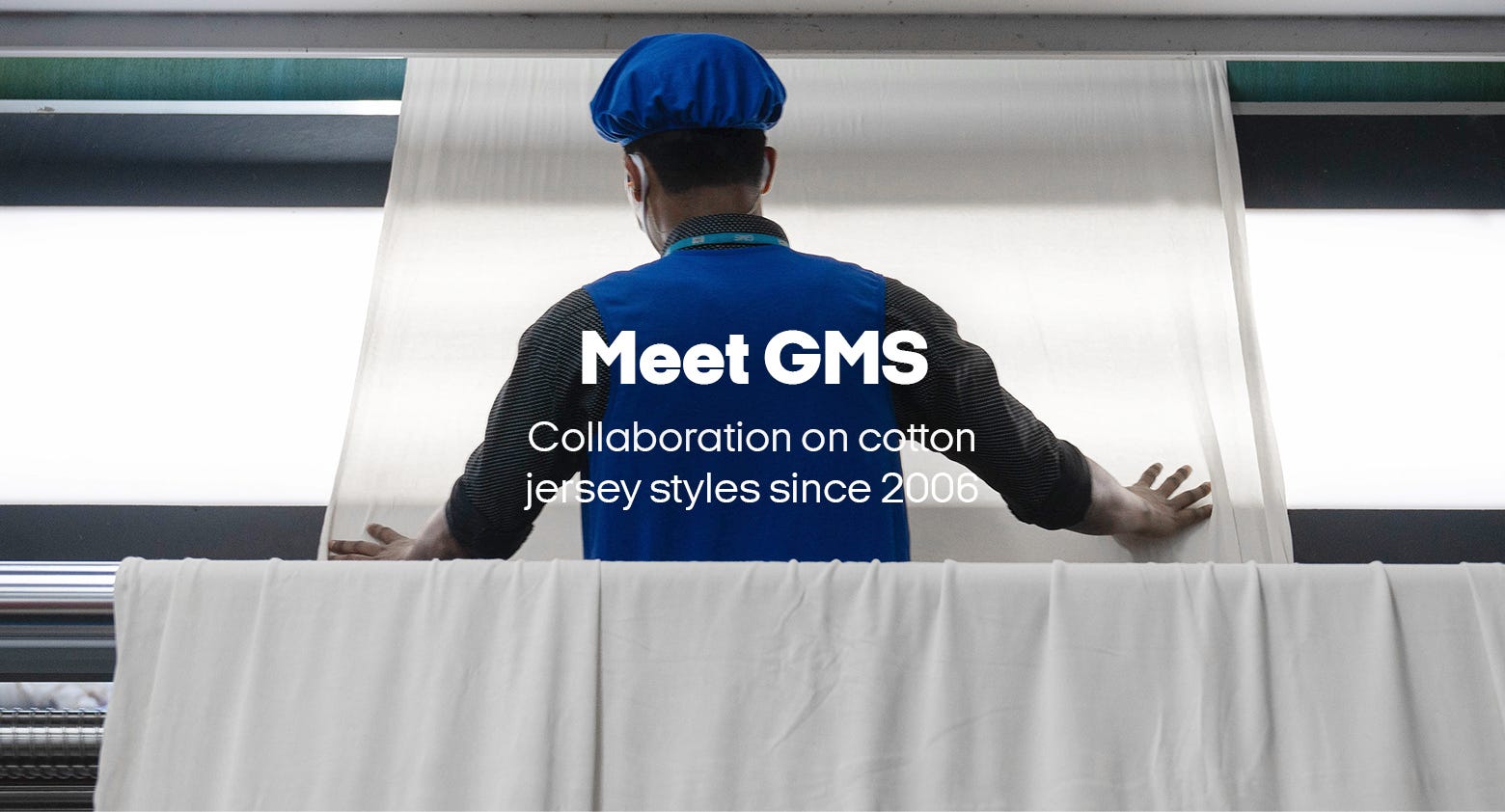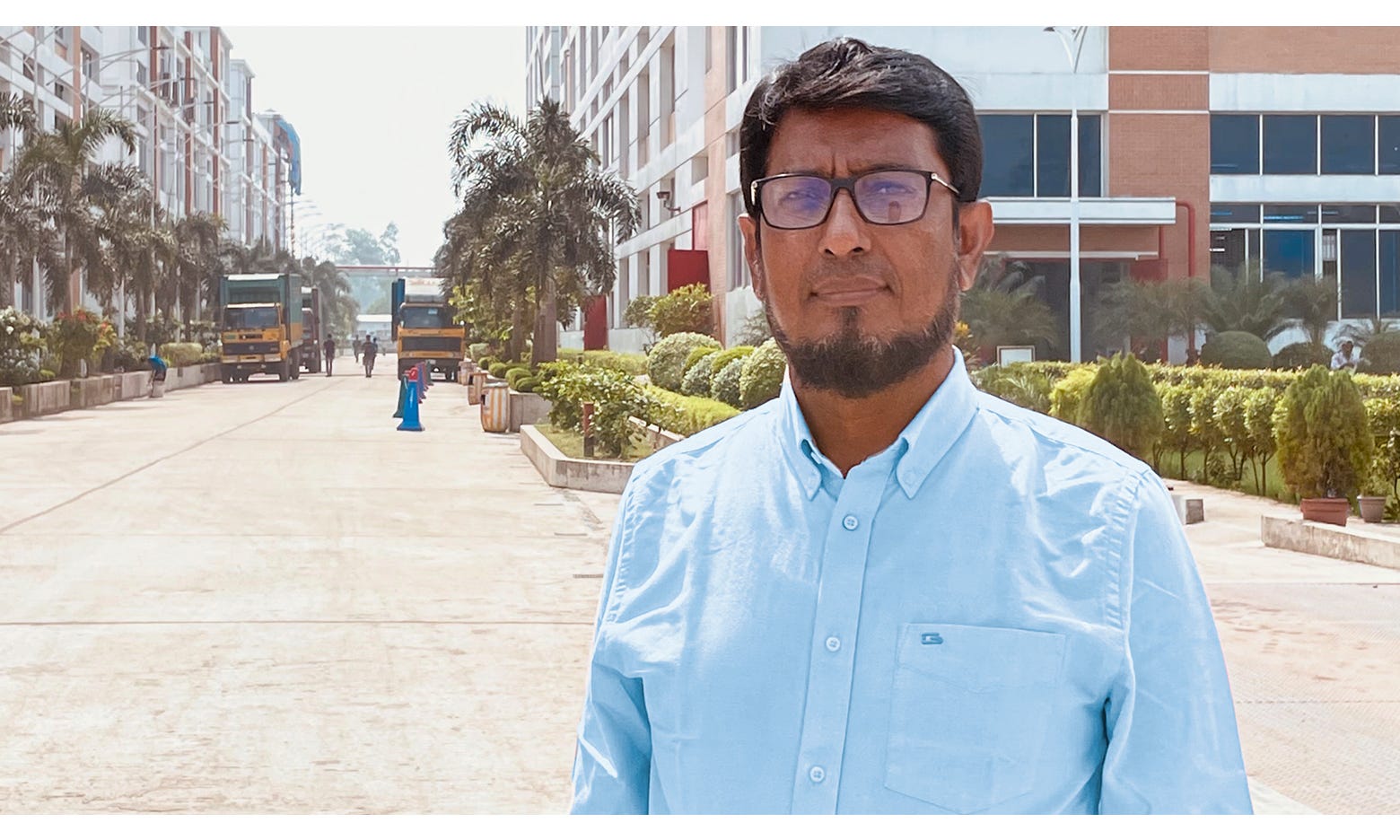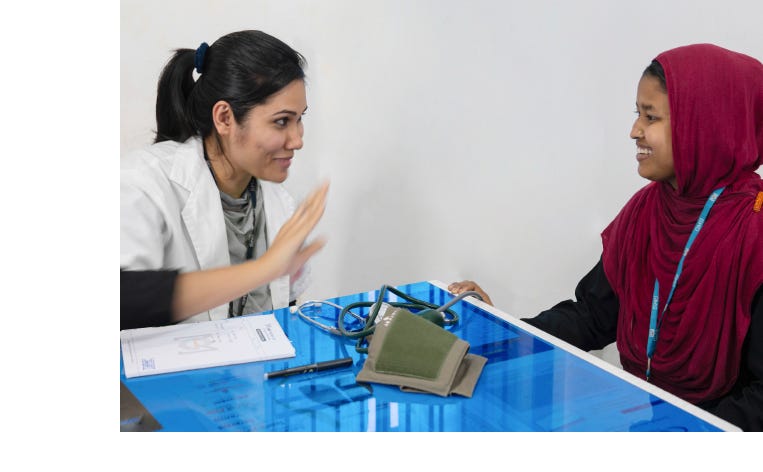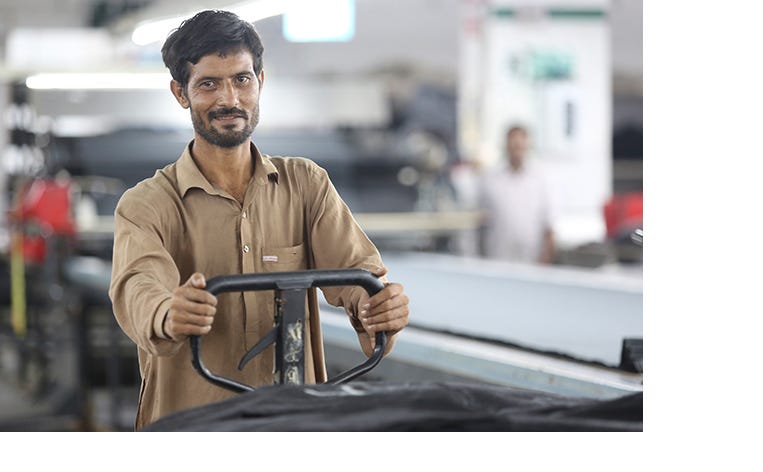
GMS Composite Knitting Ind. Limited is one of our longest-standing manufacturers. We have been working together to make cotton jersey styles in Bangladesh since 2006, and through our ongoing collaboration, we have seen GMS able to grow its staff and make exciting new investments. We have also made progress on our sustainability journeys side by side. From upping our use of organic cotton to forming an innovative partnership to recycle cotton fabric scraps with CYCLO®, we are discovering ways to lower the impact of our most popular styles.
We caught up with Mustafa Golam, the Executive Director at GMS, to learn more about the company’s approach to social responsibility and sustainability.
“Social responsibility means that every company should have a duty to act in the best interest of the society, environment and their employees. It means being good to others as best as we can.” Mustafa Golam, Executive Director, GMS

JJ: What are your day-to-day tasks at GMS?
Mustafa: I have been with GMS since the company started out over 20 years ago. As Executive Director, I look after pretty much everything – I coordinate the production, marketing and merchandising teams across our two facilities, GMS Composite and GMS Textile, as well as manage relationships with our customers.
JJ: What does social responsibility mean to you?
Mustafa: Social responsibility means that every company should have a duty to act in the best interest of the society, environment and their employees. It means being good to others as best as we can.
JJ: We have seen the positive way you relate to your employees. How do you make sure that all the people that work for you not only get to do so in great conditions, but have the possibility to grow and develop?
Mustafa: At GMS, social responsibility means making sure our workers are happy, that they can grow with the company and that they always get the right salary on time. We pay our workers more than the national minimum wage and provide them with two annual bonuses, each equivalent to a full monthly salary. We also offer educational scholarships to their children every year. I think that is why a lot of workers who joined us when I started are still here today.
JJ: We have been working with you for over 15 years, and we are really proud of the journey we have been on together. How do you think we have grown as partners?
Mustafa: JACK & JONES, and its parent company BESTSELLER, are our biggest and most loyal customers. We believe in long-term business relationships, and we think of the dynamic between us and JACK & JONES as more of a strategic partnership than a traditional brand to manufacturer relationship. We are on this sustainability journey together, and since we started working with JACK & JONES and BESTSELLER, we have been able to invest in new technology to clean up our production, such as our low liquor ratio dyeing machines from SCLAVOS, which significantly reduce the water use. We have also been involved with HERproject™, through which our employees completed health and finance training. Now they get their salary through online payment on their mobile, which gives women workers greater financial independence.


JJ: How do you measure and cut down the overall carbon emissions generated by your facilities?
Mustafa: We have a preheating device in every center, which collects heat that would be wasted, in turn helping us reduce our energy use. We are also using boilers with economizers, meaning we need less power. And the most important project is that this year we implemented solar energy in our two facilities – GMS Composite and GMS Textile. So an increasing part of the energy we need for production is coming from solar.
JJ: Let’s talk about CYCLO®! JACK & JONES and GMS are making three new styles made from the recycled cotton scraps leftover when producing our garments. Why was it so important to you to put this waste to a good purpose?
Mustafa: We generate around 12 tonnes of cutting waste every day. Some manufacturers burn this waste to produce steam, which is not good for the environment. Some give it to a third party, and sometimes it simply heads to landfill. Thanks to local recycled cotton company CYCLO®, we are going to turn it into a fiber. It is great that JACK & JONES will be using it because it means we can save the environment at the same time as serving our customers.
JJ: What is your message to the global JACK & JONES brotherhood, who wear the clothes you make all around the world?
Mustafa: JACK & JONES is a brand with very high social compliance standards, and it is producing with factories that take social responsibility and corporate sustainability as seriously as they do. They have a unique relationship with manufacturers, which is not always easy to find. So, the JACK & JONES customer should be proud of that.



